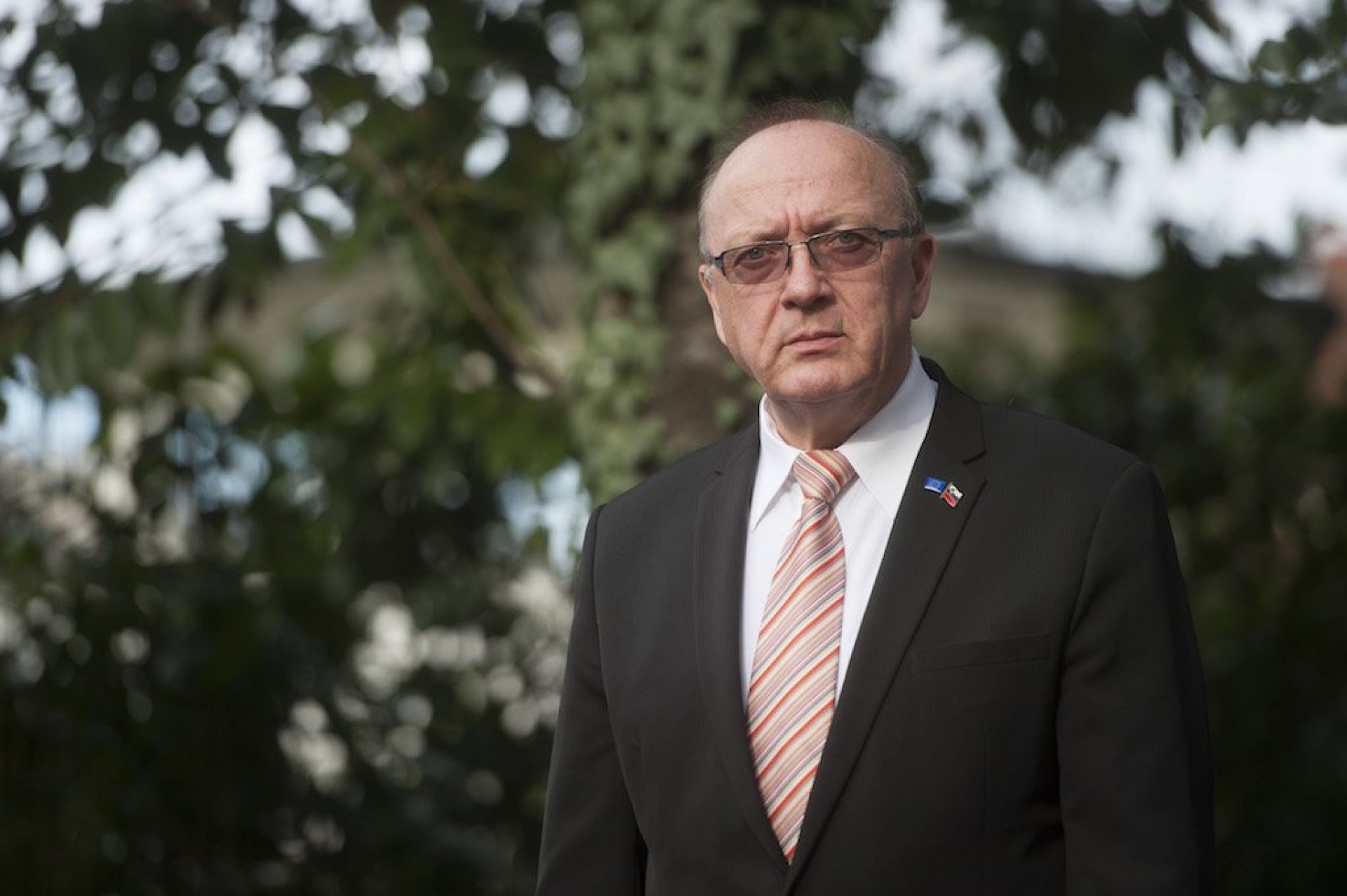It was the year 2010, or thereabouts, when I had participated in the talk show on the TV Maribor, called »On the throne«. My two interlocutors then were the prosecutor Jože Kozina and the head of the National Bureau of Investigation Robert Črepinko and also someone else. The topic of the conversation revolved around the prosecution of the economic crimes. My co-speakers have deplored the lack of the appropriate legal grounds that prevented the police and the prosecution from efficiently combatting the organised economic crimes.
So, I have challenged them. I asked them to enumerate what kind of legal grounds were necessary to be effective in their line of work. And they have told me that both institutions needed some sort of a law according to which each Slovenian citizen, not the proseutor, would have to prove the legal origins of his or her assets. Not really knowing what kind of the law they had in mind back then, I aasured them, in front of the Slovenian TV viewership, that SDS would immediately support this law.
And so I have started to research how this was dealt with in some foreign countries. By coincidence or not, I have stumbled upon Serbia, Italy and Ireland. These were at that time states who had already passed the laws regarding the origins of assets of their nationals who had to explain where they had obtained such disproportionately large wealth and not the prosecutors of these respective countries. If those nationals had not presented the evidence in question at the court, that they got those assets in a legal way, the aforesaid assets were then confiscated. All of the mentioned states, or to be more exact, their constabulary-prosecutorial-judicial system were highly efficient at it. In Serbia for example, one suspect lost the total worth of 900 million euros in confiscation. The confiscated premises, mostly luxurious villas, serve nowadays as a housing for governmental authorities and civil servants use the confiscated vehicles. The situation is very similar in Ireland. Italy however, has had such laws for quite some time now and is also renowned for having confiscated huge financial assets, in such quantities that the state had instituted a special, national enterprise that managed the aforementioned assets.
It was evident that Slovenia needed such laws as have already existed in Serbia, Italy and Ireland. And the law was indeed adopted . But it was not the government of Pahor that has sponsored its adoption. It was proposed by the political party ZARES, which was then a member of the coalition government. The law was introduced by Cveta Zalokar Oražem, a member of ZARES party. However, her version of the law was rejected by the coalition members and not by the SDS. Shortly before the parlamentarian election of 2011, a new, but actually a rehashed version of the same law emerged and was sponsored by Franco Juri, another member of ZARES party. One of the stipulations of the law was its retroactivity. Namely, it was supposed to be valid for the period beginning with the year 2006 and onwards. I was wondering why that was so. It was clear to me that the stipulations of any law were applicable only from the day of its enactment onwards, and only very exceptionally were they to be applied retroactively. In that case however, the lawmaker has to justify the so-called public interest. Since many of the state-owned assets had already been stolen one way or another even before 2006, SDS has decided to propose an amendment according to which the aforesaid law was to cover the period since the independance of Slovenia. And this amendment was adopted.
After the Upper Chamber of the Slovenian parliament, državni svet, had vetoed the law, 71 members of the lower chamber of the Slovenian parliament, belonging to different parliamentary groups of the coalition, as well as the opposition, with the exception of Jelinčič’s Slovenian National Party (SNS), overturned the aforementioned veto. I have to admit I was extremely proud when I backed this law. By voting for its enactment I naturally had the vision of all the luxurious vilas, yachts, vehicles, gold bars, as well as the hard cash of some individuals. I expected that something similar was to happen in Slovenia, as it happened in Serbia, Italy or Ireland.
Practically seven years after adopting the law, my disappointment is immense. Contrary to Serbia, Italy or Ireland, Slovenian constabulary-prosecutorial-judicial authorities were not up to their tasks. If the latest information, disclosed in the Tarča broadcast at MMC, is exact, then the collection, made by the Slovenian authorities after seven years, since the law was passed, is more than meagre, not to say disgraceful. It includes one apartement, some cash and small amounts of golden articles of jewellery. Ergo, a total shame.
However, in these seven years we have been bombarded by all the possible media, how the public prosecution is striving to confiscate the supposedly illegally obtained assets of Franc Kangler and Janez Janša. In Kangler’s case, a 35-year-old tractor was also the subject of investigation and Janša was heavily criticised for the property in Trenta, with the hovel standing on it. And the public was informed about it almost ad nauseam. But where are the villas, the yachts, the expensive cars, gold bars belonging to some individuals and more? That is offline for Slovenian public prosecutors. I wonder why that is so?
And there is more to come. The regime-controlled media do not investigate nowadays why the prosecution is incapable of confiscating the luxurious villas, yachts, expensive cars, golbars and hard cash, like this is done in Serbia, Italy or Ireland. What they do investigate into is what kind of indemnity will Franc Kangler and Janez Janša receive, given that the Constitutional Court has annulled the aforementioned law. This is unfortunately how the Slovenian landscape, controlled by leftist media, looks like. And the view is not pleasant!

